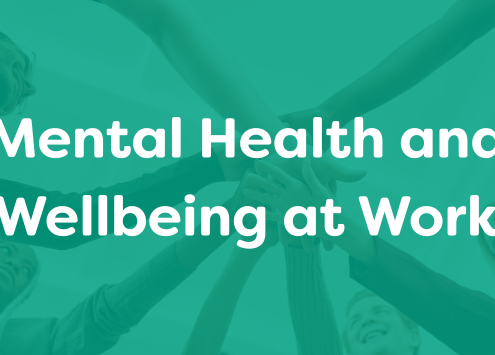 https://steponecharity.co.uk/wp-content/uploads/2025/09/Website-News-Headers-2024-1.png
355
700
Isaac Mann
https://steponecharity.co.uk/wp-content/uploads/2024/02/step-one-wellbeing.svg
Isaac Mann2025-09-12 09:52:112025-09-12 09:52:11Walking for a Cause: The Journey Behind the 300,000 Steps
https://steponecharity.co.uk/wp-content/uploads/2025/09/Website-News-Headers-2024-1.png
355
700
Isaac Mann
https://steponecharity.co.uk/wp-content/uploads/2024/02/step-one-wellbeing.svg
Isaac Mann2025-09-12 09:52:112025-09-12 09:52:11Walking for a Cause: The Journey Behind the 300,000 StepsThe theme for this year’s Mental Health Awareness Week is “Movement: Moving more for our mental health”. The aim is to raise awareness of the importance of exercise and to help us all to find more opportunities for movement in our daily routines. By increasing the amount of exercise in our lives, we can benefit our mental wellbeing as well as our physical health. In this blog post, Dr. Lindsay Jones, Clinical Psychologist here at Step One, explores 6 ways in which movement and exercise can enhance our mental wellbeing.
1. Managing and reducing stress
Modern life can mean that many of us are in chronic states of stress, as we try to juggle constant demands and pressures. This can lead our nervous systems into a “fight or flight” response during which we release hormones such as cortisol and adrenaline. These hormones prepare us for action by increasing our heart rate and breathing rate and slowing down digestion. Whilst this is helpful when dealing with short term stressful situations, if it becomes chronic it can cause anxiety and impact on our physical health.
Exercise reduces the circulation of these stress hormones, and stimulates the production of endorphins, the chemicals in the brain that naturally reduce pain and elevate mood. In this way, it reduces the harmful effects of stress. Repetitive physical movement also allows the body and mind to release tension, promoting a sense of calmness.
Feeling overwhelmed? Consider Step One’s mental health management sessions available across Devon.
2. Mood regulation
Most of us experience changes in our moods, and for some people this can be more extreme, leading to feelings of being overwhelmed. Regular activity stimulates the production of neurotransmitters such as serotonin and dopamine which play important roles in mood regulation and promoting feelings of wellbeing. Serotonin contributes to mood stabilization, and dopamine enhances focus and motivation. Maintaining balanced levels of these neurotransmitters is crucial for managing conditions like depression and anxiety.
Movement can also help us to be more anchored in the present moment. The repetitive movements in many forms of exercise and the regulation of breathing creates a meditative state in which thoughts become less scattered and creative problem solving can more easily occur.
3. Better sleep
Adequate sleep is important for emotional regulation, memory consolidation and overall mental health. Having ongoing sleep disruption can result in finding it more difficult to make decisions and solve problems and has been linked to depression and anxiety.
Regular exercise is known to improve the quality and duration of sleep, contributing to improved mood and cognitive function. Research suggests that 30 minutes of moderate intensity physical exercise daily can help improve sleep quality.
Gentle yoga or stretching before bed can also promote good sleep.
4. Enhanced self-esteem and confidence
People who engage in regular physical activity report increased levels of confidence and self-esteem. By setting small, achievable goals we can foster a sense of achievement and self-worth. As we become physically stronger, we also often feel mentally stronger and have more energy.
Exercise can also increase body-positivity and improved self-image. As a result of these positive changes, people are more likely to take care of themselves in other areas of their lives, such as eating well, looking after their physical health and resting when they need to. This in turn creates a positive cycle that supports improved mental health and wellbeing.
5. Improved cognitive functioning
Aerobic exercise improves circulation which benefits the brain as well as the body. Regular physical activity, especially aerobic exercise, has been linked to improved memory and clearer thinking. Exercise boosts the production of Brain-Derived Neurotrophic Factor (BDNF), a protein that supports the growth and maintenance of brain cells. Higher levels of BDNF are associated with improved cognitive function and reduced risk of mental health disorders. This is important across the entire lifespan. Exercise has been shown to be beneficial for children and students, enhancing their ability to concentrate in school, as well as for older people where it can reduce the risk of cognitive decline, including dementia.
6. Connection and community
Participation in group exercises (like our wellbeing walks in Exeter, Paignton, Torquay and Newton Abbot) or team sports provides opportunities for social interaction, which can reduce feelings of isolation and loneliness. It is known that social connection is important for mental health as it offers emotional support and a sense of belonging.
“Green exercise”, which refers to physical exercise in natural environments can be particularly beneficial. Exeter boasts beautiful green spaces like Exeter Riverside Valley Park and the Exeter Green Circle walk, and immersing yourself and exercising outdoors has been associated with improving mental health, particularly by reducing anxiety and depression. It also promotes relaxation, positive emotions and mindfulness states as we tune into the sights, sounds, smells and sensations in the natural environment.
In summary
All forms of movement and exercise are beneficial, so it is important to choose something that you enjoy and that you can integrate into your daily life. In order to make it a permanent part of your life, build up gradually and do what you love. It can be helpful to schedule activity into your daily routine. Remember, short bursts of activity all add up!
Step One is here to support mental health in Devon. Through our BeWell@StepOne service, we offer a variety of sessions to help you get active, connect with others, and improve your mental wellbeing. Explore more here.








![Graphic with quote reading: “You met me at one of the most difficult times and seeing the difference you’ve made is amazing [...] Please keep doing what you do. You change lives.”](https://steponecharity.co.uk/wp-content/uploads/2025/04/Website-News-Headers-2024-33-495x355.png)

